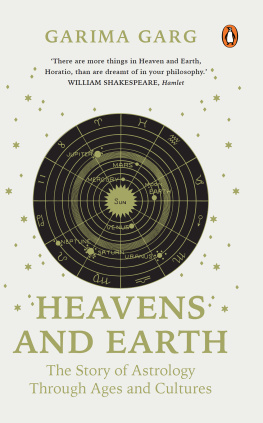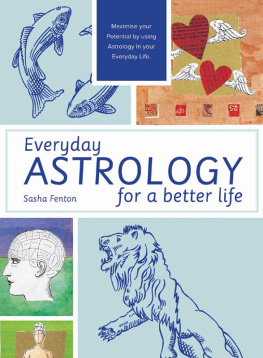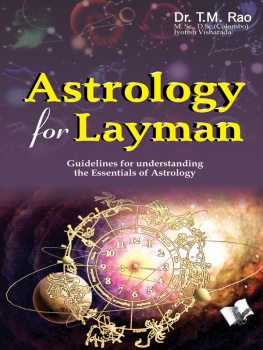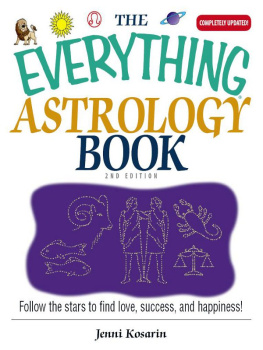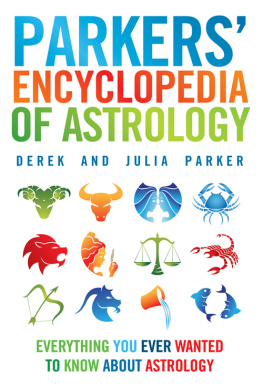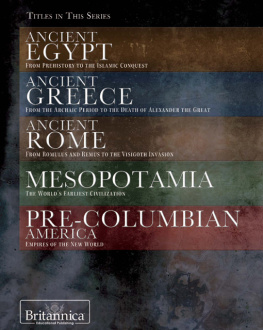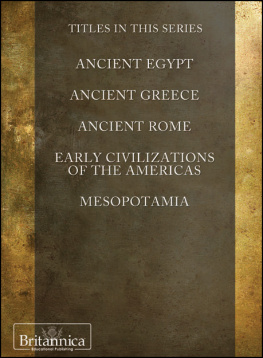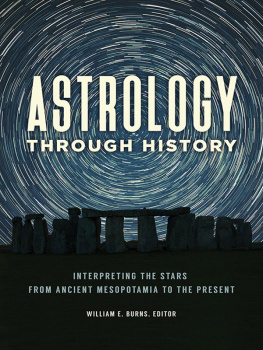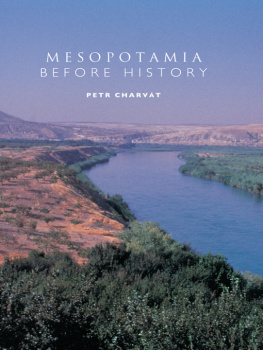Baigent - Astrology in Ancient Mesopotamia: The Science of Omens and the Knowledge of the Heavens
Here you can read online Baigent - Astrology in Ancient Mesopotamia: The Science of Omens and the Knowledge of the Heavens full text of the book (entire story) in english for free. Download pdf and epub, get meaning, cover and reviews about this ebook. year: 2016, genre: Religion. Description of the work, (preface) as well as reviews are available. Best literature library LitArk.com created for fans of good reading and offers a wide selection of genres:
Romance novel
Science fiction
Adventure
Detective
Science
History
Home and family
Prose
Art
Politics
Computer
Non-fiction
Religion
Business
Children
Humor
Choose a favorite category and find really read worthwhile books. Enjoy immersion in the world of imagination, feel the emotions of the characters or learn something new for yourself, make an fascinating discovery.

Astrology in Ancient Mesopotamia: The Science of Omens and the Knowledge of the Heavens: summary, description and annotation
We offer to read an annotation, description, summary or preface (depends on what the author of the book "Astrology in Ancient Mesopotamia: The Science of Omens and the Knowledge of the Heavens" wrote himself). If you haven't found the necessary information about the book — write in the comments, we will try to find it.
Baigent: author's other books
Who wrote Astrology in Ancient Mesopotamia: The Science of Omens and the Knowledge of the Heavens? Find out the surname, the name of the author of the book and a list of all author's works by series.
Astrology in Ancient Mesopotamia: The Science of Omens and the Knowledge of the Heavens — read online for free the complete book (whole text) full work
Below is the text of the book, divided by pages. System saving the place of the last page read, allows you to conveniently read the book "Astrology in Ancient Mesopotamia: The Science of Omens and the Knowledge of the Heavens" online for free, without having to search again every time where you left off. Put a bookmark, and you can go to the page where you finished reading at any time.
Font size:
Interval:
Bookmark:

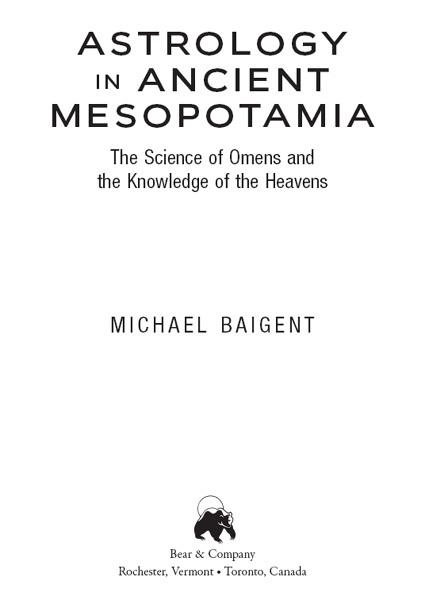
Michael Baigent was one of the most studious yet open-minded historians of modern times. Astrology in Ancient Mesopotamia stands the test of time and remains essential for every bookshelf.
ANDREW COLLINS, AUTHOR OF
GBEKLI TEPE: GENESIS OF THE GODS
My gratitude must first go to my wife, Jane, who constantly encouraged me to pursue this project.
Next I should like to thank my colleagues, Dianne Binnington, Nicholas Campion, Charles Harvey, and Richard Leigh, for their ideas, for their criticism, and for their support. I owe, too, a particular debt to Erin Sullivan for finding a place for this book.
I must thank Dr. Christopher Walker of the Western Asiatic Department in the British Museum and Dr. Francesca Rochberg-Halton of Notre Dame University, Indiana, who gave freely of their advice and information in order to illuminate certain dark areas in my understanding.
I should also like to thank Sabine Bauch for her translations from German and Caroline Wingent for easing my recalcitrant prose and punctuation back into acceptable bounds. Finally, of course, I owe much to the efficient staff of the British Library Reading Room, Bloomsbury.
But, above all else, I am in debt to those ancient astrologers who, seduced by the night, gazed in wonder at the endless dark sky, which stretched far beyond the temple towers of Mesopotamia.
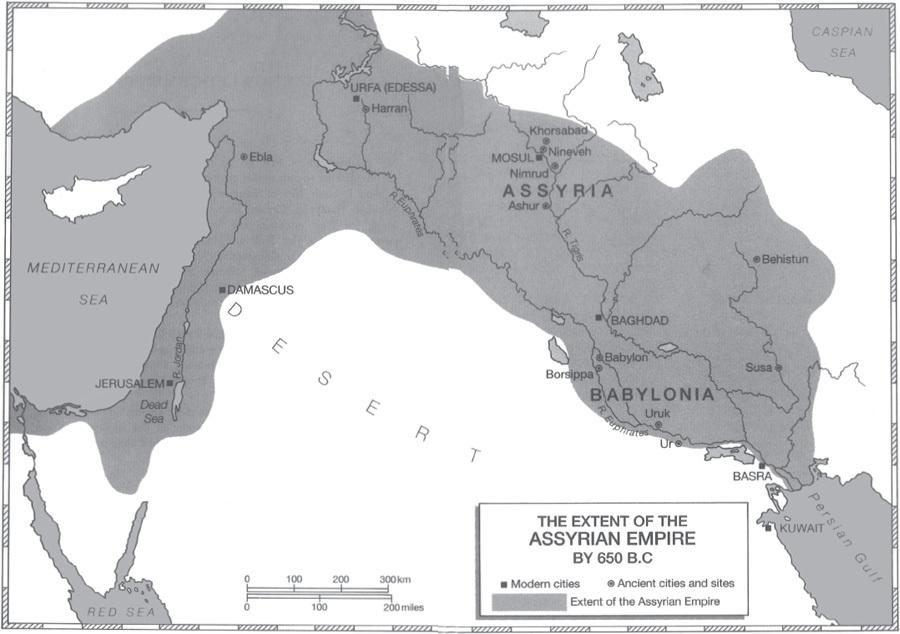
The type of astrology that involves human affairs en masse is termed mundane. Its area of concern embraces kingdoms and nation-states together with their rulers. It is to be distinguished from the more familiar modern practice, that of natal astrology. This, proceeding from the basis of a birth charta symbolic representation of a particular individualseeks a greater understanding of an individuals life, talents, and psychological dynamics. Mundane astrology, on the other hand, seeks a greater understanding of the dynamics of the mass of individuals who are gathered together in the body politic.
The earliest astrology known was discovered inscribed upon the ancient clay tablets excavated in Mesopotamia over the last century and a half. So far as the extant texts allow us to form any judgment, this astrology from the past appears to be exclusively mundane in its orientation. Indeed, the individual birth chart does not appear in the historical record until some twelve hundred years later than the first known codified mundane astrological textthis latter dating from the period of the Babylonian king Ammisaduqa, who reigned during the first half of the second millennium BCE.
The initial object of this book is twofold: first, to explore the state of astrology in the Babylonian and Assyrian empires and, second, to investigate the extent to which, if at all, modern astrological practice has inherited those ancient interpretations and techniques.
However, during the course of these inquiries a third line of exploration will emerge that concerns a particular important religious and magical aspect of early Babylonian cosmological speculation. This aspect survived the triple onslaught of Aristotelian philosophy, Christianity, and Islam to cross over to the West, where it played a significant role in the greatest European cultural change over the last millennium: the Renaissance. It will be argued that the residues of Babylonian magic helped to midwife the birth of the artistic explosion that marked this extraordinary period.
Astrological symbolism depends upon mythology; this book then will explore the complicated realms of Mesopotamian mythologya mythology, incidentally, almost devoid of consistency, unlike that of Greece or Rome. Because this ancient Mesopotamian mythology was in a continuous state of changefor the mythology served the state and thus changed as the state changedno easy delineation of the pantheon can be devised. However, despite the impossibility of definitive answers, this investigation cannot be circumvented, for the mythology of such a nation is entwined with its magic and astrology; all are reflections of the nations psychological reality.
Astrology is to be taken seriously. It is important to any exploration of the inhabitants of history. Despite the self-evidence of this statement, few historians have been prepared to take the study into account, both for its own sake and for the insight it reveals into the intellectual traditions of the past. One of the few who have taken the time to investigate the area, the late Professor Leo Oppenheim of the Oriental Institute of the University of Chicago, repeatedly stressed the importance of astrology in understanding the Mesopotamian cultures of the past.
Yet, regardless of his insight, many scholars still seem content to dismiss astrology as superstition or creative idiocy, thus consciously or unconsciously depriving this aspect of history of the professional attention needed to reveal its contents. Typical of the hostile attitude so often adopted is that of the archaeologist Georges Roux, in all other respects sensitive to the flavor of the ancient Middle East. He seems almost personally outraged at the ancient priests when he writes while the most objectionable end-product of the Mesopotamian belief in destiny, astrology, permeated and corrupted the religions of the West.
Commonly, historians, while fully prepared to range widely over most aspects of ancient life, however bizarre they might seem to us today, quite clearly retain a marked personal disdain for astrology. A good example is evinced in an otherwise excellent work on ancient Babylon by Professor H. W. F. Saggs. His book is comprehensive: it fills some 504 pages of text, yet only three pages describe Babylonian astrologyand this in the face of the assertion by a fellow historian and author of a book on ancient Babylon, Joan Oates, that not only was divination one of the most basic features of Babylonian life, but the omen texts form the greatest number of surviving examples of ancient Mesopotamian literature. Clearly something is wrong.
Part of the reason for Saggss attitude is revealed when he allows his prejudice to emerge: he speaks of astrology as a folly which, to judge by the space devoted to it in certain daily newspapers and womens magazines, is still far from eradicated from our civilizations. Apart from his assumption that astrology should be eradicated, one wonders about the source of his aversion to womens magazines.
Such personal hostility on the part of respected scholars working and teaching in the field has placed numerous obstacles in the way of other professionals, who have thus tended to avoid it. This has led to many of the astrological tablets being accorded a low priority and thus never being translated and published. Consequently, any study of the subject must necessarily remain limited because it has available as its source material only a part of what might potentially be provided. Fortunately, recent decades have seen a serious attempt on the part of certain Assyriologists to rectify the situation.
Despite the present limitations, an attempt will be made to understand the field, utilizing tablets that have been translated into English, French, or German by such experts as the late professor Ernst Weidner in Germany, Reginald Campbell-Thompson in England, Emmanuel Laroche in France, Dr. Christopher Walker at the British Museum, Professor Sima Parpola in Finland, and Herman Hunger and Erica Reiner at the University of Chicago Oriental Institute. The latter, who studied under Leo Oppenheim, is continuing the important work of translating the codified astrological series, the Enuma Anu Enlil, a task first begun in the 1930s by the late Ernst Weidner. The most recent work on this series is that of a former student of Erica Reiner, Dr. Francesca Rochberg-Halton, whose doctoral dissertation concerning the Babylonian moon omens from the Enuma Anu Enlil has been published in an augmented form.
Font size:
Interval:
Bookmark:
Similar books «Astrology in Ancient Mesopotamia: The Science of Omens and the Knowledge of the Heavens»
Look at similar books to Astrology in Ancient Mesopotamia: The Science of Omens and the Knowledge of the Heavens. We have selected literature similar in name and meaning in the hope of providing readers with more options to find new, interesting, not yet read works.
Discussion, reviews of the book Astrology in Ancient Mesopotamia: The Science of Omens and the Knowledge of the Heavens and just readers' own opinions. Leave your comments, write what you think about the work, its meaning or the main characters. Specify what exactly you liked and what you didn't like, and why you think so.

